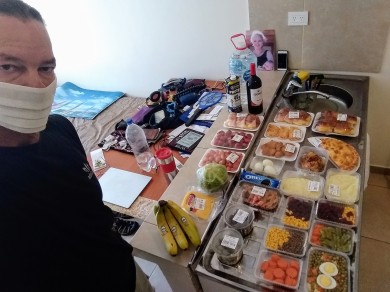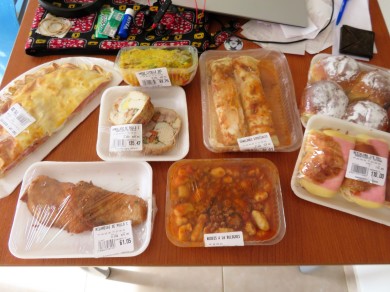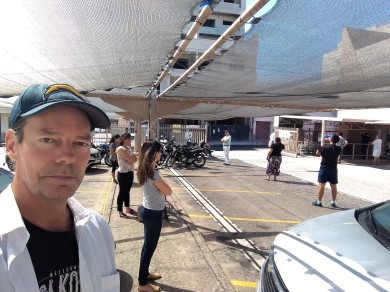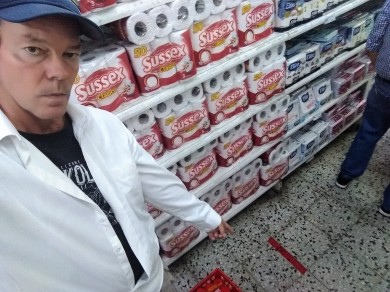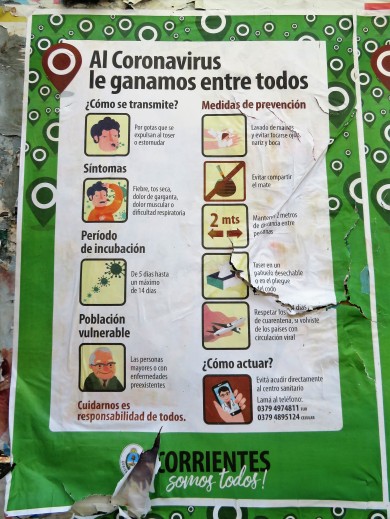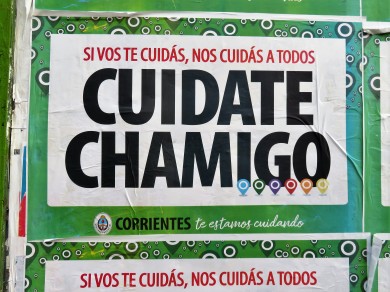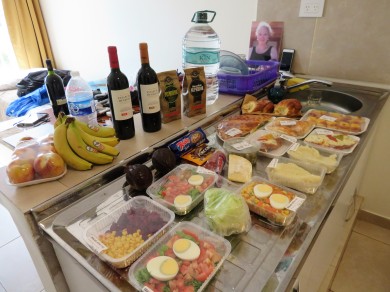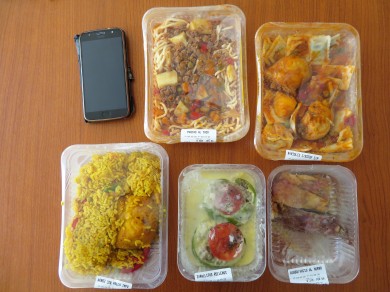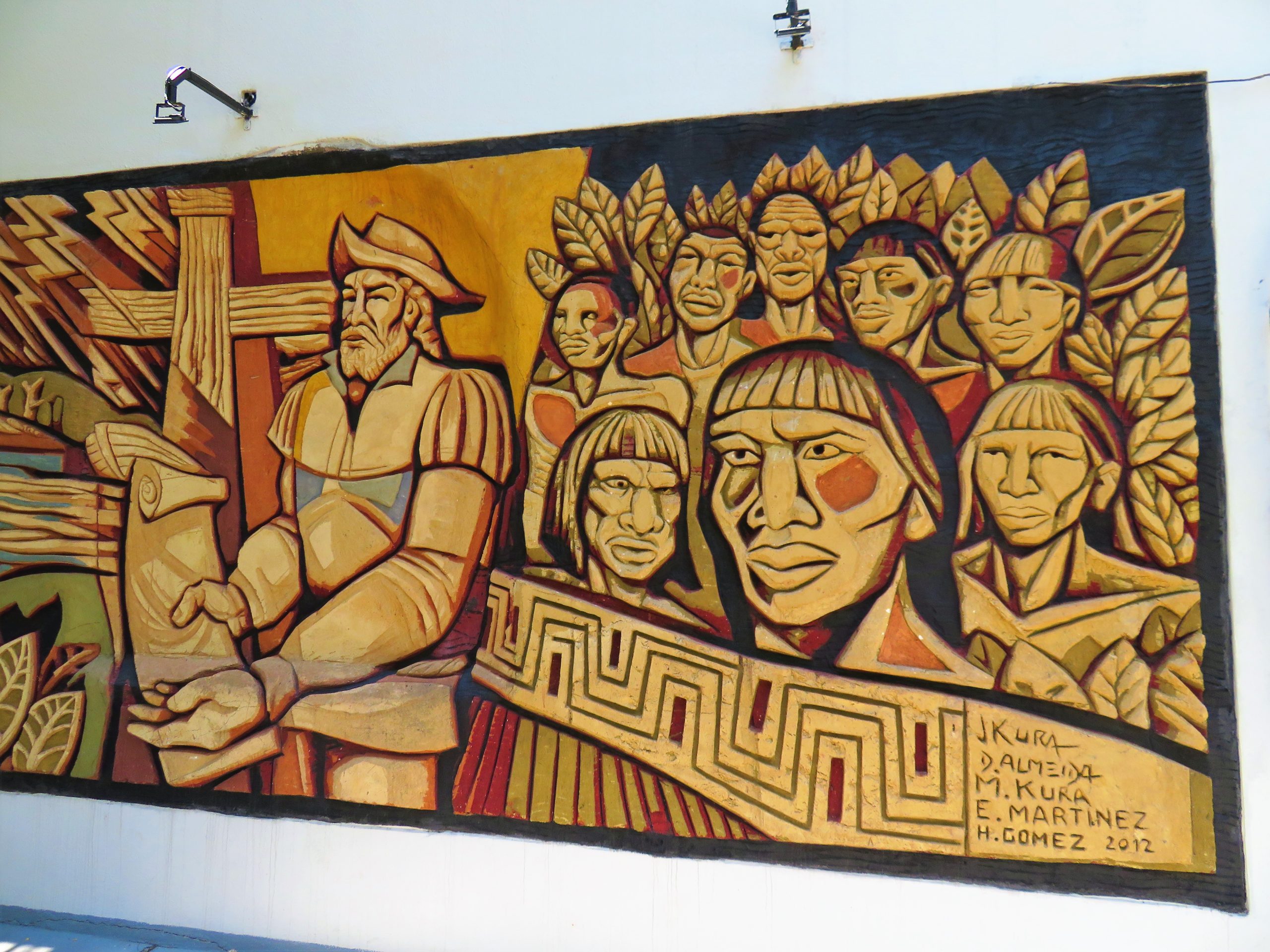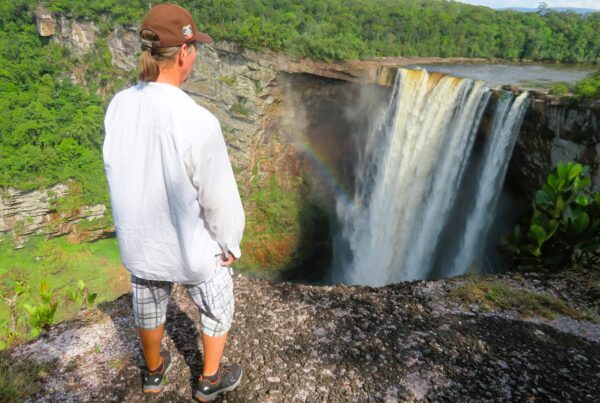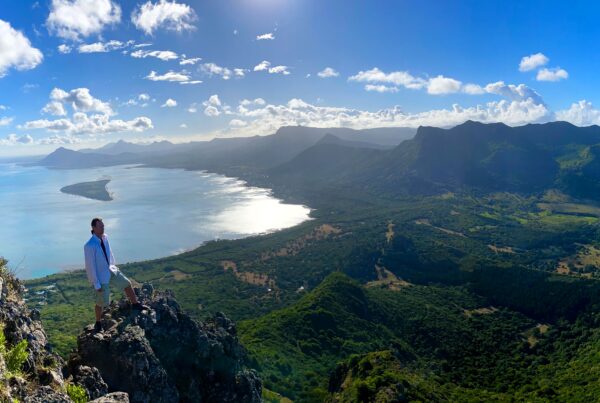“Covid-19 caught up with me in Corrientes, Argentina, Kim, and I couldn’t be luckier.”
My birthday present was a white mask and purple rubber gloves from the doorman at discount grocer Supermercado Impulso. In mid-March 2020, the pandemic arrived in Corrientes exactly on my birthday.
I can pass for an Argentine—I have similar features to most people here, descendants of Italians and Spaniards—but my native façade crumbles as soon as the first Spanish R rolls off my stiff, gringo tongue.
“Medialunas, por favor.” I asked the bakery ladies for my beloved croissants or “half-moons.”
“No tienes fiebre, verdad?” You don’t have a fever, right? Uh-oh, birthday boy is a risk.
“No tengo fiebre.” No, I don’t have a fever.
“Cuanto tiempo has vivido aqui? How long have you lived here?
“Llevo tres meses en Argentina.” I’ve been in Argentina for three months.
I prepped for my friendly interrogation with Google Translate and Duolingo. I’m used to being an outsider, but this is different. Serious.
“My social distancing life began on my birthday with red tape in the check-out line.”
My Airbnb apartment’s sole cooking utensil is a microwave, so I’m screwed if Supermercado Impulso closes and their hot deli food disappears.
Argentina is currently defaulting on their international loans for the ninth time in their short history. Argentina is battling Greece for the defaulter gold medal, and their Peronista leaders—the populist political movement started by Evita’s hubby Juan Perón in 1946—blame American “vulture” lenders for their troubles. But don’t cry for Argentina’s Peronistas, Kim, they’ve been binge-shopping on their credit card for decades.
With Covid19 raging in the United States and Wall Street Goliaths battling Argentina, I won’t be busting out my stars and stripes apparel.
“Will pandemic xenophobia bite me in mi culo?”
My Flecha Bus left Buenos Aires on March 3rd, the plan was to celebrate my birthday somewhere in northern Argentina before heading to Paraguay and then Brazil. I wanted to take advantage of Argentina’s low prices and depreciating peso.
Two weeks later Argentina went into quarantine; travel between provinces was restricted, land borders with Paraguay and Brazil were closed, and all domestic and international flights were grounded.
To keep the Argentine peso from becoming toilet paper the Peronistas force all banks to use a fictitious exchange rate. That means paying with my debit card makes everything 50% more expensive; four days’ worth of groceries costs $17 cash or $26 with a card. Cash is king in Argentina.
But I don’t have unlimited cash. Luckily, in February I withdrew five, crisp, new Ben Franklins from ATMs in Uruguay. With border closures and travel restrictions, how am I going to get more US dollars?
Oddly, Kim, the least of my worries is catching the Covid19 virus. Despite the heart-breaking reports from Italy and New York, the virus isn’t so scary here in Corrientes.
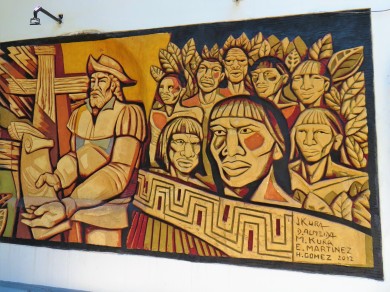
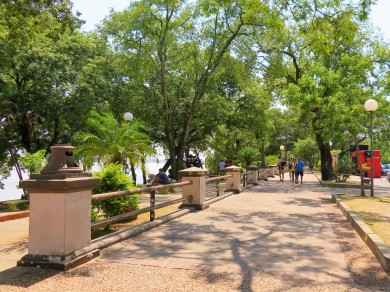

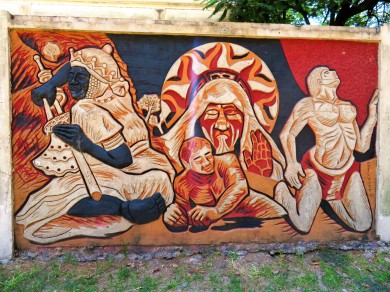
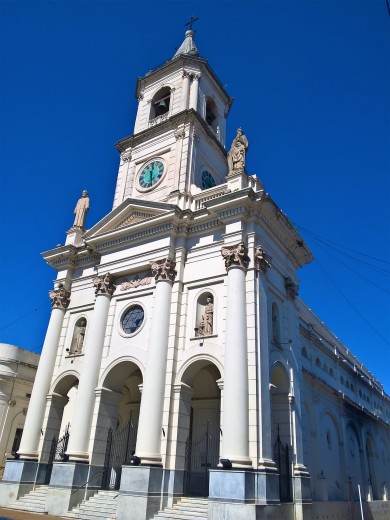
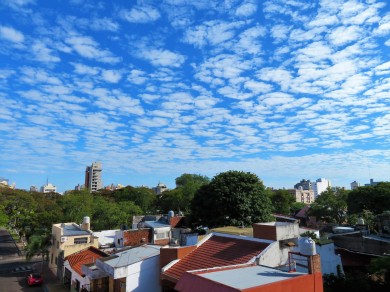
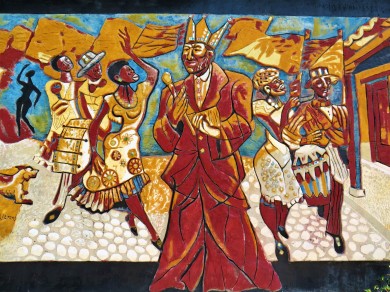
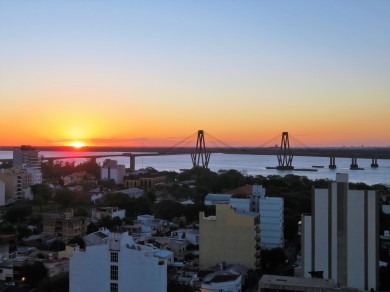
“The Peronistas’ economic quackery is killing Argentina’s economy, but I’m benefiting from their strict, life-saving lockdown.”
Argentina’s new president issued strict stay-at-home orders and made masks mandatory on March 20th. And the Corrientes provincial government issues many public service announcements; billboards say Cuidate Chamigo or “be careful friend”—a fusion of indigenous Guarani “che” and Spanish “amigo”—and police are everywhere reminding citizens to wear masks.
Lucky for me, the Covid19 virus hasn’t spread far from the capital of Buenos Aires.
The world knows Peronistas don’t repay their loans and can’t be trusted to make investor-friendly business decisions. So, Argentines have become experts at dealing with hyper-inflation, currency controls, and peso-meltdown. They go through a fin del ciclo or “end of a boom-bust cycle” every decade.
Argentina has a sophisticated black market for US dollars including multiple websites listing daily “dólar blue” exchange rates. In Buenos Aires the shopping areas are filled with touts yelling cambio, cambio that will take you to the back of a store—called a cueva or “cave”—to exchange money. But cuevas are big business and locals introduced me to their upscale cuevas “hidden” in fancy office buildings.
Here in Corrientes, my Airbnb host’s family owns a home in Miami and they buy my dollars at the “official” dólar blue exchange rate. Their USA connection allows me to pay them directly through PayPal—avoiding the Airbnb and PayPal fees—and saves me another $60 a month.
My blue dollar bought 73 pesos when I arrived in January, now my dólar blue fetches 135 pesos.
“Argentina’s economic shit storm is my windfall, Sis, my dollars buy 85% more pesos now.”
But I’ve exchanged all my dollars except for my emergency stash. Now my only option is to wire myself money through Western Union. Somehow, Western Union is able to skirt Argentina’s currency controls. The exchange rate is about 15% less than dólar blue cash, but still 70% higher than the official bank rate. And Tuesday is the only day I can pick up my pesos at Western Union, since my passport number ends in 3, a social distancing measure.
I’ve learned to bank like an Argentine, Kim, and my economics minor is finally paying off. I keep track of dólar blue exchange rates and watch the government’s negotiations with lenders (bad news sends the peso down). I wired myself $300 early—a couple weeks before I actually needed it—to get an exchange rate of 124. The next day Western Union’s exchange rate dropped to 115. I saved $26. Cha-ching!
Supermercado Impulso has never closed and their comida preparado, or hot deli food, is fabulous; zapallitos rellenos, arroz con pollo, asado, guiso de carne, and pastas y ravioles — from Argentina’s Italian connection. Last night’s dinner of world-famous Argentine beef asado and zucchini rellenos was absolutely delicioso, and cost less than a dollar.
“Health care workers AND grocery store staff are heroes in this pandemic.”
I couldn’t be stuck in a better place to deep dive into Argentina’s fascinating history, culture, and wacky economics. I’m taking a gut-wrenching ride aboard the world’s worst, economic crazy-train. Ozzy would be proud.
Instead of my usual bunkbed in a hostel, I’m staying in a modern, full apartment including a dining room converted into a makeshift gym, hot shower, comfortable bed—with clean sheets and towels upon request—and strong Wi-Fi for $11.67 a night. And food costs only $4 a day.
That’s serious bang for your blue buck, Sis.
“As Covid19 infections spike and Argentina melts down, I’m content living my princely vagabond life for $16 a day.”
Despite the unknown future of post-pandemic travel—how the hell am I going to get a great Kim’s View in Libya, Chad, and Venezuela now?—shutting down our Kim’s View world tour is not an option.
We smashed our record for the longest stay in one city during this epic journey; the first week of September is our 22nd week in Corrientes, easily beating our 16 weeks in Lviv, Ukraine.
I’m enjoying my peripatetic life in this pandémica paraíso, while protests against police and political propaganda prevail back home and a pandemic-induced, Peronista pity-party rages nearby. You’re right, Kim, that’s way too many Ps.
I’m the luckiest nomada on the planet.
